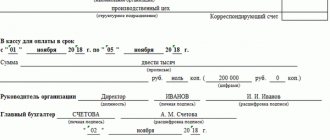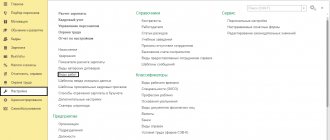The statute of limitations is understood as the time period during which one of the conflicting parties has the right to apply to the courts in order to protect their interests. In relation to individual labor disputes, it has been increased since January 2021. The article discusses the current rules for determining the statute of limitations for collecting wages, as well as the grounds and procedure for its restoration.
Legal regulation
The relationship between employer and employee is regulated by the Labor Code of the Russian Federation. It was adopted after the signing of No. 197-FZ, which dates back to December 30, 2001. The current version of the Labor Code of the Russian Federation came into force on April 24 of this year.
The limitation period for individual labor disputes is determined by two articles of the code. The first one is Art. 386 - establishes the time period given to the employee to apply to the labor dispute commission created at the enterprise (abbreviated as CTS). Second – Art. 392 – regulates a similar possibility for filing a claim in the courts.
Answer
The organization has the right to write off bad debts after the expiration of the statute of limitations. Determine the amount of overdue debt based on the results of the inventory and reflect it in the act, for example, using form No. INV-17. Carry out the inventory by order of the manager (form INV-22). To write off receivables and payables, the manager must issue an appropriate order. The basis for this will be an inventory act and an accounting certificate.
If one employee has accounts receivable and accounts payable, then it is necessary to offset them.
The amount of accounts receivable for which no reserve was created is written off by posting:
Debit 91-2 Credit 70 – accounts receivable not covered by the reserve are written off.
Within five years from the date of write-off, reflect it in the balance on account 007:
Debit 007 – written off receivables are reflected.
The written off amount of debt is the employee’s income, which is subject to personal income tax. Because The organization does not have the opportunity to withhold personal income tax from a former employee; it must inform the tax authority at its place of registration about the impossibility of withholding tax and the amount of the taxpayer’s debt.
The tax base for the single tax of the amount of written off bad receivables is not reduced. If an organization pays a single tax on the difference between income and expenses, when determining the tax base, it can only take into account those costs that are listed in paragraph 1 of Article 346.16 of the Tax Code of the Russian Federation. Expenses in the form of amounts of bad debts are not named in it.
In accounting, the write-off of accounts payable is reflected by the posting:
Debit 70 Credit 91-1 – the amount of accounts payable with an expired statute of limitations is written off.
When calculating the single tax under simplification, the amount of written off accounts payable must be taken into account as part of non-operating income.
If during a tax audit it turns out that the organization did not reflect income in the form of bad accounts payable, the organization will be charged an additional single tax. You will also have to pay a fine of 20% of the unpaid tax and a penalty in the amount of 1/300 of the refinancing rate for each day of delay.
The rationale for this position is given below in the materials of the Glavbukh System
1. Recommendation: How to formalize and reflect in accounting and taxation the write-off of bad receivables
Debt write-off
In accounting, accounts receivable need to be written off:
- after the expiration of the limitation period;*
- in other cases, when it becomes unrealistic for collection, for example, during the liquidation of an organization.
This is stated in paragraph 77 of the Regulations on Accounting and Reporting.
Accounts receivable must be written off separately for each obligation.
Documenting
The fact of the occurrence of receivables must be documented (Part 1, Article 9 of the Law of December 6, 2011 No. 402-FZ).
Determine the amount of overdue accounts receivable based on the results of the inventory and reflect it in the act, for example, according to form No. INV-17. Carry out the inventory by order of the manager (form INV-22).
To write off accounts receivable, the manager must issue an appropriate order. The basis for this will be an inventory report and an accounting certificate.*
This is stated in paragraph 77 of the Regulations on Accounting and Reporting, letter of the Federal Tax Service of Russia for Moscow dated December 13, 2006 No. 20-12/109630.
Attach documents confirming its occurrence to the accounts receivable inventory report, for example:
- agreements that specify the terms for repayment of obligations by counterparties;
- invoices;
- certificates of work performed (services rendered);
- acts of inventory of receivables at the end of the reporting (tax) period.
Accounting
In accounting, reflect the write-off of accounts receivable from the reserve for doubtful debts by posting:
Debit 63 Credit 62 (58-3, 71, 73, 76.) – accounts receivable are written off at the expense of the created reserve.
The reserve can be used only within the reserved amounts. If during the year the amount of expenses for debt write-off exceeds the amount of the created reserve, reflect the difference as part of other expenses (clause 11 of PBU 10/99).
When writing off the difference, make the following entry:
Debit 91-2 Credit 62 (58-3, 71, 73, 76.) – accounts receivable not covered by the reserve are written off.
Writing off receivables for which the statute of limitations has expired, or other debts that are unrealistic to collect, does not constitute cancellation of the debt. Therefore, within five years from the date of write-off, reflect it on the balance sheet in account 007 “Debt of insolvent debtors written off at a loss” (Instructions for the chart of accounts):
Debit 007 – written off receivables are reflected.*
During this period, monitor the possibility of its collection if the debtor’s property status changes (clause 77 of the Regulations on Accounting and Reporting).
Citizens' debt
simplified tax system
Actual State Councilor of the Russian Federation, 3rd class
2. Recommendation: How to formalize and reflect in accounting and taxation the write-off of bad accounts payable
Debt inventory
Accounts payable must be written off separately for each obligation. Determine the amount of overdue accounts payable based on the inventory results.
Carry out the inventory by order of the manager. You can use the standard form of this order (Form No. INV-22). Or you can develop a template yourself, approving it in the appendix to the accounting policy.
Written justification for writing off a specific obligation is an inventory act (you can use standard form No. INV-17 or a self-developed form) and an accounting certificate. Based on these documents, the manager issues an order to write off accounts payable.*
This is stated in paragraph 78 of the Regulations on Accounting and Reporting.
Accounting
If the accounts payable are not repaid by the organization in a timely manner and are not claimed by the creditor, then in accounting they are subject to write-off after the expiration of the statute of limitations (clause 7 of PBU 9/99, clause 78 of the Regulations on Accounting and Reporting).* An exception to this rule is tax debt (fees, penalties, fines). The expiration of the limitation period is not a basis for writing off such debt.
The amount of written off accounts payable for which the statute of limitations has expired should be included in other income in the amount in which this debt was reflected in accounting (clause 7, 10.4 of PBU 9/99).
In accounting, reflect the write-off of accounts payable by posting:
Debit 60 (62, 66, 67, 70, 71, 76-4) Credit 91-1 – the amount of accounts payable with an expired statute of limitations has been written off.*
Make such an entry in the period in which the statute of limitations for accounts payable expired (clause 16 of PBU 9/99).
simplified tax system
An exception is accounts payable for taxes (fees, penalties, fines) written off or reduced in accordance with current legislation or by decision of the Government of the Russian Federation. Such debt is not included in income when calculating the single tax (subclause 1, clause 1.1, article 346.15, subclause 21, clause 1, article 251 of the Tax Code of the Russian Federation).
If the organization owes a debt to the supplier, then include in income:
- proceeds from the sale of goods (clause 1 of article 346.15, clause 1 of article 249 of the Tax Code of the Russian Federation). Those for which the organization has not paid the seller. At the same time, do not take into account the cost of such goods written off as overdue accounts payable (letter of the Ministry of Finance of Russia dated August 7, 2013 No. 03-11-06/2/31883). After all, expenses for the purchase of goods are recognized as they are sold and provided that they are paid (clause 2 of Article 346.17 of the Tax Code of the Russian Federation). But in this case this is not done;
- the amount of written off accounts payable in the amount of the cost of unpaid goods (clause 1 of Article 346.15, clause 18 of Article 250 of the Tax Code of the Russian Federation).
This is interesting: The statute of limitations for income certificates of civil servants is 2021
When writing off a debt to customers, the amount of the prepayment not closed by delivery is taken into account in income only once - at the time of receipt of such an advance. There is no need to re-record income as accounts payable written off, as this would result in double taxation of the same amounts. As of the date of writing off accounts payable, the simplified organization has no income in the sense of Article 41 of the Tax Code of the Russian Federation.
This follows from paragraph 1 of Article 346.17, paragraph 1 of Article 346.15, paragraph 18 of Article 250 of the Tax Code of the Russian Federation.
Actual State Councilor of the Russian Federation, 3rd class
Personal income tax.
In accordance with paragraph 1 of Article 210 of the Code, when determining the tax base, all income of the taxpayer received by him, both in cash and in kind, or the right to dispose of which he has acquired, is taken into account.
Thus, the amount of advance payment of wages issued to an employee is subject to taxation by personal income tax in accordance with the established procedure.
Paragraph 2 of Article 223 of the Code provides that in the event of termination of employment relations before the end of the calendar month, the date of actual receipt by the taxpayer of income in the form of wages is considered to be the last day of work for which income was accrued to him.
From the above it follows that the date of receipt by a former employee of the organization of income in the form of an advance payment is recognized as the last working day of his work in the organization.
According to paragraph 1 of Article 226 of the Code, Russian organizations from which or as a result of relations with which the taxpayer received income are required to calculate, withhold from the taxpayer and pay the amount of personal income tax.
When an employee is dismissed and has a debt in the form of a previously issued advance, the organization is recognized on the basis of Article 226 of the Code as a tax agent and is obliged to calculate, withhold from the taxpayer and pay the amount of tax to the budget system of the Russian Federation.
Funds given to the employee on account must be returned. To achieve this, the organization must take all measures provided for by law.
If this turned out to be impossible due to, for example, the expiration of the statute of limitations or if the organization decided to forgive the employee’s debt, then the date the former employee of the organization received income in the form of unreturned amounts of money issued on account will be the date from on which such collection became impossible or the date of adoption of the corresponding decision.
In accordance with paragraph 5 of Article 226 of the Code, if it is impossible to withhold from the taxpayer the calculated amount of tax, the tax agent is obliged to, within one month from the moment the corresponding obligations arise, inform in writing to the tax authority at the place of his registration about the impossibility of withholding the tax. and the amount of the taxpayer’s debt.*
Paragraph 3 of the order of the Federal Tax Service of Russia dated October 13, 2006 N SAZ-3-04/ “On approval of the form of information on the income of individuals” is recommended for tax agents to report to the tax authorities at the place of their registration about the impossibility of withholding tax and the amount of the taxpayer’s debt in form N 2- Personal income tax “Certificate of income of an individual for the year 200_”, approved by order.
4. Situation: Tax offenses for which the Tax Code of the Russian Federation provides for tax liability
Tax offense
Base
Responsibility
Gross violation of the rules for accounting for income and (or) expenses and (or) taxable items**
Non-payment or incomplete payment of tax (fee)***
Non-payment or incomplete payment of a tax (fee) committed unintentionally (due to negligence) (fine in the amount of 20% of the unpaid amounts of tax (fee))
Failure to pay a tax (fee) committed intentionally (fine in the amount of 40% of the unpaid amounts of tax (fee))***
* This is how part of the material is highlighted that will help you make the right decision.
Calculation rules
The statute of limitations for cases of collection of unaccrued or unpaid wages when applying to the CCC is three months, and when filing a statement of claim in court - one year. The countdown of time begins from the moment when the employee received or should have received information about a violation of his labor rights.
It should be noted that a similar period of three months is provided for applying to the CCC for any type of labor dispute. The situation with a lawsuit is somewhat different. The employee is given a year only for disputes over wages and equivalent payments, for example, compensation for vacation or other similar payments. The statute of limitations for starting legal proceedings in conflicts of a different nature is much shorter:
- You can challenge your dismissal within a month;
- Three months are given to file a claim for other disputes.
Important . Until the beginning of 2021, a similar three-month period applied to disputes regarding the collection of wages. Its changes in the direction of increase - 4 times at once - are rightly considered beneficial for employees.
Time limits for collecting wages in court
If a conflict situation arises between an employee and an employer regarding delays in financial payments, the employee has every right, after 15 days, to completely stop performing his duties until the debt is paid. Naturally, having warned the boss about this with an appropriate written document and having previously analyzed the provisions of the employment contract. If it was not possible to resolve the issue in a civilized way, there is a legal right of a person offended in this way to seek help from lawyers with subsequent legal proceedings.
This can be done within a year (1st year) from the moment the employee learned about the violation of his labor rights. After the expiration of the specified period, although applications to the court are accepted, there is a high risk of losing the case due to the expiration of the statute of limitations.
If the case is related to dismissal, then the employee must receive the unpaid funds within 1 month from the day on which he was notified of this by written order or given a work book.
Peculiarities of presenting claims for the collection of wages by current employees
The procedure for asserting rights by employees with whom the employment relationship has not been terminated deserves special mention. This category of employees has the opportunity to file a lawsuit at any time without restrictions.
In fact, there is no statute of limitations for such labor disputes. The legality of this approach was confirmed by the Plenum of the RF Armed Forces in Resolution No. 1 adopted on March 17, 2004 (clause 56). Over the past 16 years since the publication of the document, courts of various instances have made a large number of decisions in favor of the plaintiffs.
What to do if the statute of limitations has expired?
The expiration of the statute of limitations does not mean the employee loses the right to appeal to the CCC or court. The rules of work of the labor dispute commission established by the Labor Code of the Russian Federation provide this body with the opportunity to restore the deadline and consider the conflict situation on its merits. To do this, it is enough that the reasons for missing time to contact the employee are recognized as valid.
The court is also obliged to accept the employee’s statement of claim and open a case, within the framework of which the issue of the statute of limitations is considered. The decision made is based on two factors. The first is the presence of a statement from the employer about the expiration of the statute of limitations, and the second is the reasons for the delay and the employee’s petition for its reinstatement.
If the employer does not submit the specified document, the court considers the case in the general manner. If there is an application from the employer, which happens most often, the reasons for the delay are first examined. They must be indicated in the petition to restore the statute of limitations filed by the employee.
If the petition is not completed, there is a high probability of refusal to satisfy the claim. If the document is drawn up accordingly and found to be justified, the period is restored, after which the case is considered on its merits in the usual manner.
Grounds for restoration
As noted above, both the CCC and the judicial authority have the right to restore the expired period for filing a claim in disputes regarding the collection of arrears of wages. To do this, the reasons for missing the time given to contact any of the specified bodies must be recognized as valid.
These, in accordance with the provisions of the Labor Code and Resolution No. 2 of the Plenum of the Armed Forces of the Russian Federation, include:
- employee's stay on a business trip;
- force majeure circumstances;
- disease;
- the need to care for a relative with a serious illness.
The above list is not exhaustive. It can be expanded, but for this the employee must prove two facts:
- the objective nature of the circumstances;
- their clear connection with their own personality.
The best option for the employee is to support the text of the petition with documentary evidence. For example, being on a business trip is confirmed by a travel certificate, the presence of a disease in yourself or a relative is confirmed by a sick leave certificate or a certificate from a medical institution. An alternative form of evidence is the testimony of one, or preferably several, people.
Important . The absence of documentary evidence or the provision of documentation with false information practically guarantees the refusal of the application and the inability of the employee to defend his rights in court.
The following grounds for filing a petition to restore the statute of limitations are not considered valid:
- the employee’s appeal to other regulatory or supervisory authorities, for example, the labor inspectorate or the prosecutor’s office, as well as waiting for a response from them;
- payment of wages by the employer, occurring on a periodic basis and irregularly;
- the employee lacks information about the wages due to him or other payments equivalent to it;
- appeal to a judicial body whose functions do not include consideration of the case, and other similar circumstances.
Important . The current practice of considering cases by courts shows that it is not always possible to prove the presence of good reasons and restore the deadline for filing a claim. In most cases, the judge refuses the plaintiff. All the more seriously one should take the correct execution of the relevant petition and support it with documentary evidence.
The debts remained with those fired. What to do?
Company accountants sometimes have to deal with situations where an employee quits, but still owes the company a certain amount of money. In these cases, the first question of interest is: what to do with the resulting debt of a resigned employee? The answers to this question are contained in our article.
All situations with debts of company employees can be divided into 2 groups. First. The employee is in the process of being fired, but it is already clear that the final settlement amount will not be enough to compensate for his debts to the company. Second. The employee has already quit and is no longer owed money, but his debt to the company remains outstanding. Let's look at both of these situations. Let us also consider the procedure for writing off and reflecting in accounting and tax accounting the amounts of various debts of dismissed employees.
Main types of debts of laid-off workers
The reasons for employee debts to the employer vary. But the main thing is that the employee has the right to terminate the employment contract with the company at any time on his own initiative. In this case, it is enough for the employee to notify the employer in writing 2 weeks before the day of his dismissal. On the last day of work, the manager is obliged to issue such an employee a work book and make final payments to him 1.
In this case, the employee may have debts to the company. But the employer has no right to delay the issuance of the work book and the final payment amount.
There are different types of debts laid off workers owe to companies. In practice, the following types of debts of dismissed employees are most often encountered:
- salary receivables resulting from a cash advance issued to an employee that was not fully worked out by him;
- the debt of the resigned employee for the accountable amounts issued to him;
- the employee’s debt for a loan not repaid in a timely manner;
- debt of a resigned employee for unworked vacation days.
Debt repayment methods
How to eliminate an employee's debt to the company? There are several main ways to get rid of such debt:
- deduction of the amount of debt from the final payment amount of the resigning employee;
- voluntary return of debt by the employee to the employer;
- collection of debts of a dismissed employee in court;
- debt forgiveness.
These methods can be used individually or in combination. You can deduct the debt of the resigning employee from the final payment amount. This is possible if the final settlement amount is greater than the amount of the accumulated debt. It must be borne in mind that in most situations, except for cases of full financial liability, an employee can indisputably be brought only to limited financial liability, that is, he bears such liability within the limits of his average monthly earnings 2. But if an employee resigns, then more than 20 percent of the amount due to him upon dismissal cannot be withheld from him, since the final payment is a one-time payment 3 . It should also be taken into account that labor legislation strictly defines cases in which an employer can withhold an employee’s debts to the company from the salary of a resigning employee 4 . In addition, such deductions can be made only if the employee does not dispute the grounds and amounts of deductions 5 . In this case, the employee's written consent to such deductions should be obtained 6 .
This is interesting: The statute of limitations under Article 290 of the Criminal Code of the Russian Federation is 2021
Example
The company's accountant made the following entries:
DEBIT 70 CREDIT 68 – 4810 rub. — personal income tax is withheld from the final payment amount;
DEBIT 70 CREDIT 73 – 6438 rub. — the amount of debt on accountable amounts is withheld;
DEBIT 50 CREDIT 73 – 5562 rub. - the company’s cash desk received a sum of money voluntarily contributed by Nikolaev N.K.
Collection by court
What to do if the employer, for example, having the right to withhold amounts for unearned vacation, cannot make it due to lack of payments, and the employee does not want to deposit the excess vacation pay into the company's cash desk? There are 2 possibilities: forgive the debt or collect it in court 7 . But according to paragraph 2 of the Rules on regular and additional vacations, if the employer, having the right to withhold, was actually unable to make it during the calculation, then further recovery (through the court) is not made 8 . Although currently the order of the Ministry of Health and Social Development of Russia is being registered with the Ministry of Justice of Russia, by which this norm of the Rules is recognized as no longer in force. If the order is registered, the employer will be able to recover the debt through the court after dismissing the employee.
In the meantime, if an employee refuses to voluntarily repay the amount of debt for unworked vacation, collecting it in court is very problematic, but possible. In judicial practice, there are decisions to collect debts from dismissed employees for unearned vacation pay 9 .
However, the legal battle with a resigned employee can last a long time. What should an accountant do? In this case, you should adjust income tax expenses in tax accounting for the amounts of overpaid vacation pay or advances 10 . It will be necessary to recalculate the tax base for income tax and the amount of income tax itself and submit updated declarations to the Federal Tax Service 11. At the same time, it is not necessary to reduce the accruals of insurance premiums, contributions for “injuries”, as well as the amount of personal income tax, since the money was actually received by the employee and was not returned, there is no need to submit “clarifications” for these contributions.
Example
On the date of dismissal of the employee, the accountant made the following accounting entries:
Further. The following entries must be made as of the date of application to the court:
If the court does not satisfy the company's claim against the employee, all previously incurred expenses will be considered incurred as expenses not taken into account for tax purposes.
Then the following entry should be made in accounting:
In this situation, an important point should be taken into account. If the company cannot return the excess amounts paid in court and does not reduce expenses in tax accounting by the amount of accrued unearned vacation pay, then after the expiration of the statute of limitations, these expenses in the form of resulting accounts receivable cannot be re-accounted for as non-operating expenses that reduce taxable profit 12 .







